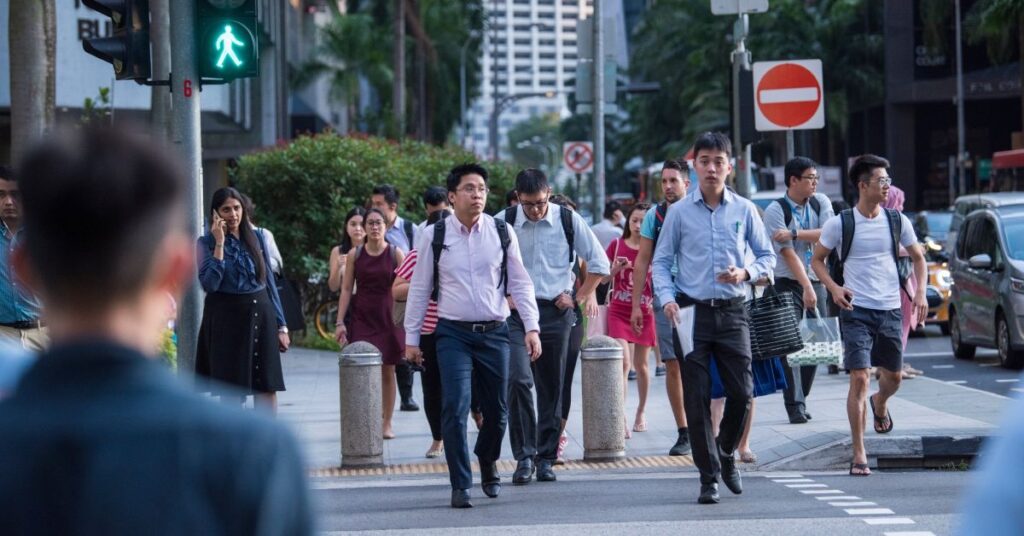Ask any online shopping addict in Singapore, and chances are Taobao will crop up during the conversation.
One of Alibaba Group’s subsidiaries, Taobao, has become a one-stop online shop for many Singaporeans to get a hold of anything… and everything.
Taobao Literally Has Everything – Fakes Too

The bad thing about shopping on Taobao though is the amount of counterfeit goods you have to trawl through.
This is good if you are already looking for an imitation of your favourite products and don’t mind the risks that come with a dupe, but for everyone else, this makes for a painful shopping experience.
The situation was deemed bad enough that even the Office of the United States Trade Representative (USTR) put Taobao on their blacklist TWICE, once in 2011 (removed a year later), and the second time just two weeks ago.
This was a list that includes the likes of mega torrent site The Pirate Bay, so you know it’s a very serious matter.

Since 2012, they have worked with major US-based international organisations such as the Motion Picture Association (MPA) and International AntiCounterfeiting Coalition (IACC) to combat pirated goods and content being sold on Taobao.
But clearly, that wasn’t enough.
They were fortunate in 2015, when they managed to avoid being blacklisted by a whisker, but they weren’t as lucky as Christmas dawned on 2016.
As mentioned in the USTR’s Ouit-of-Cycle Review of Notorious Markets for 2016, Taobao was described as an e-commerce platform which “is an important concern due to the large volume of allegedly counterfeit and pirated goods available”, and is also where rights holders have significant trouble putting a stop to dupes at.
Alibaba Group Finally Lets Loose The Lawyers

Forbes’ Michael Zakkour described this move by the USTR as a huge misstep, considering that piracy is a daily battle fought by many brands, and that the decision to blacklist Taobao was one made in ill will despite Alibaba Group’s best efforts to eradicate counterfeits.
Nonetheless, the Alibaba Group is continuing with their mission to eliminate fakes off their sites. In a first for them, a lawsuit was filed against two vendors of counterfeit Swarovski watches.
As a result of a “violation of contract and goodwill” Alibaba will be seeking RMB 1.4 million (US$201,320) for going against their terms.

This lawsuit will set a precedence within Alibaba’s many e-commerce sites, especially Taobao.
Chief Platform Governance Officer Jessie Zheng, who is the group’s champion in anti-counterfeiting, says that the company plans to drag many more vendors to court for similar offences, in a bid to create a safe haven for online shoppers, as well as to to restore the “hard-earned trust and reputation” of Alibaba.
Using Data To Weed Out Piracy

As much as the Alibaba Group is well known for online shopping, at the heart of the company still lies the extensive use of technology and data.
Machine learning and analysis of big data were used in conjunction with “mystery shopping” for suspected fake merchandise which they purchased and assessed for authenticity together with Swarovski. When revealed to be counterfeits, they quickly tracked down the sellers in Shenzhen.
This recent lawsuit was filed as a followup to the seizure of some 125 fake Swarovski watches and 2 counterfeit Swarovski official seals, all of which had an estimated value of RMB 200 million (US$28.7 million).
“Crunch enough data, and you can sometimes even determine the source of a fake product thousands of miles away from where it was sold.”
Big data analytics and information has been a godsend for Alibaba’s more than 2,000 full-time employees and 5,000 volunteers in the war against counterfeits.
This has not only enabled them to shut down some 58 online stores as of December last year, it also has helped lead Chinese authorities to the source of the fakes – the factories which they came from.
In Time For The Lunar New Year

The moves comes timely especially since the Lunar New Year is right around the corner, and with people being people, there’s bound to be millions of last minute shoppers across Asia scrambling to make purchases in time for the celebrations.
So a crackdown on errant sellers hawking counterfeit goods is a good image booster for Taobao, and the Alibaba Group in general.
However, they are also quick to caution themselves. Being the world’s biggest online marketplace, they are well aware that they do not have a one size fits all solution to their problem.
At the moment, though, the Alibaba Group looks set to be comfortably cruising into the year of the Rooster.
Also Read: App Annie Predicts How You Can Make US$166 Billion In 2017 – Mobile Apps















